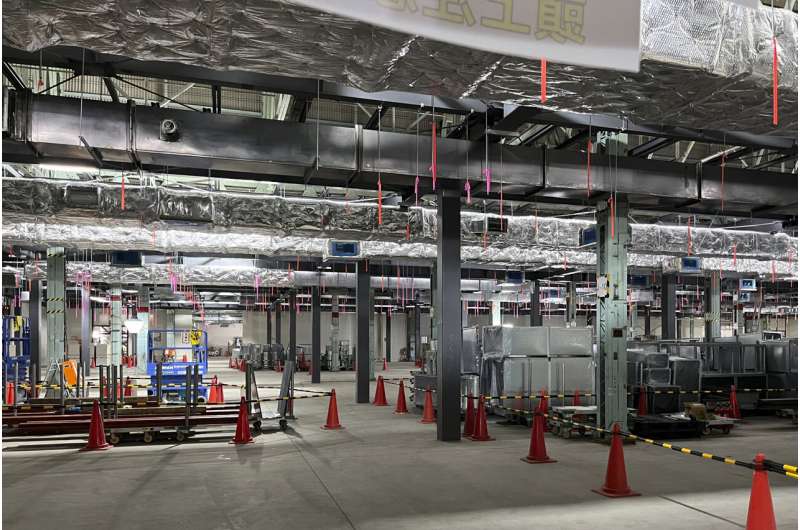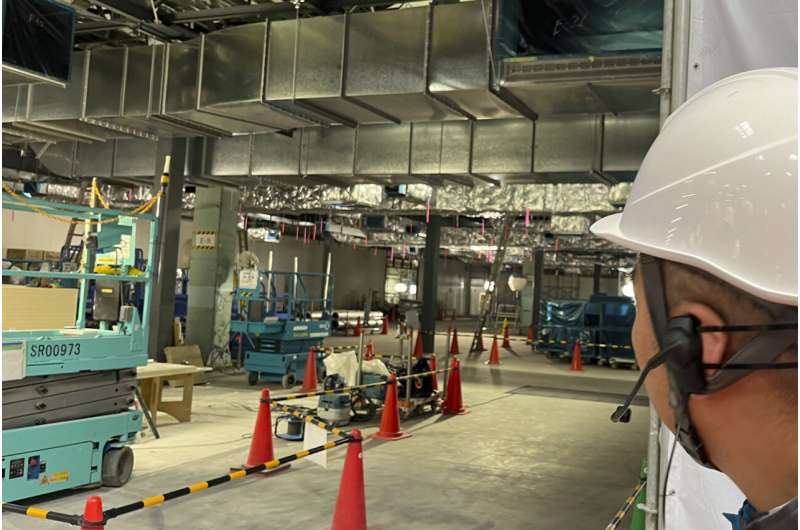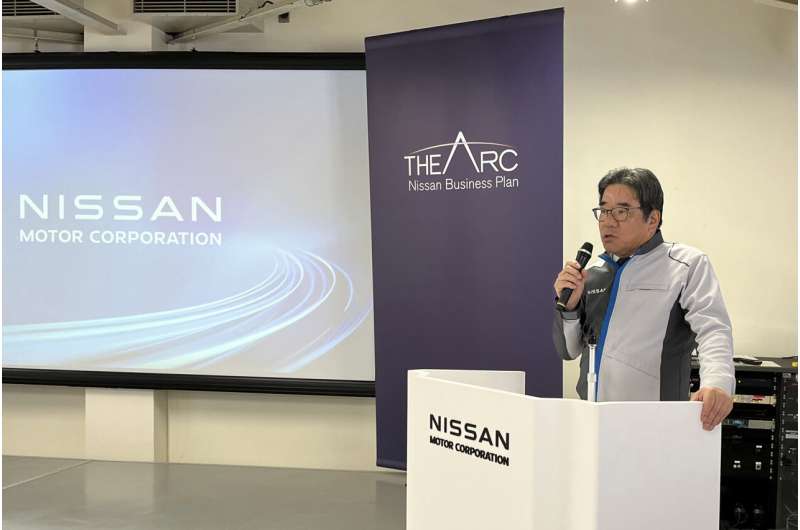
Nissan expects to mass produce electric vehicles powered by advanced next-generation batteries by early 2029, the company said Tuesday during a media tour of an unfinished pilot plant.
Japan's legacy automakers have fallen behind newer rivals like America's Tesla and China's BYD in the emerging all-electric auto sector.
But Nissan, like other companies, sees a chance to catch up and perhaps leap ahead with a new kind of battery that promises to be more powerful, cheaper, safer and faster to charge than the lithium-ion batteries in use today.
Solid-state batteries, which replace the corrosive liquids found in conventional batteries with solid metals, are widely seen as the next step for EVs, and leading automakers are racing to develop versions that can be mass produced.
Rivals like Volkswagen and Toyota have also announced efforts to produce solid-state EVs, with Toyota setting a date of 2027-28 to begin bringing them to market.
But substantial challenges remain before the technology reaches commercial mass production.
The sprawling facility Nissan showed off Tuesday was still mostly empty, but company officials said it's scheduled to begin operating a pilot production line by March 2025, with commercial production of EVs there set to start in fiscal year 2028, which runs from April 2028 to March 2029.

"Once electric vehicles get going, costs will come down compared to the internal combustion engine. They will also be so convenient. For one, you won't ever have to go to a gas stand," Executive Vice President Hideyuki Sakamoto told reporters at a tour of the sprawling facility southwest of Tokyo.
"The engineers at Nissan are all working hard to create this new world," said Sakamoto.
Nissan officials offer few details about many aspects of the technology, as well as the amount of investment and global production plans.
They said the company had come up with key, unique materials for the batteries, including a metal form of lithium.
Nissan was an EV pioneer, introducing the all-electric Leaf in 2010. The company said it plans to offer solid-state batteries in a range of models, including pickup trucks.

"We are finally in the phase of scaling up on our all-solid-state battery line," said Shunichi Inamijima, corporate vice president.
"Our all-solid-state battery technology is a game-changer for making EV sales grow explosively."
© 2024 The Associated Press. All rights reserved. This material may not be published, broadcast, rewritten or redistributed without permission.
Citation: Nissan says it will make next-generation EV batteries by early 2029 (2024, April 16) retrieved 16 April 2024 from https://techxplore.com/news/2024-04-nissan-generation-ev-batteries-early.html
This document is subject to copyright. Apart from any fair dealing for the purpose of private study or research, no part may be reproduced without the written permission. The content is provided for information purposes only.
